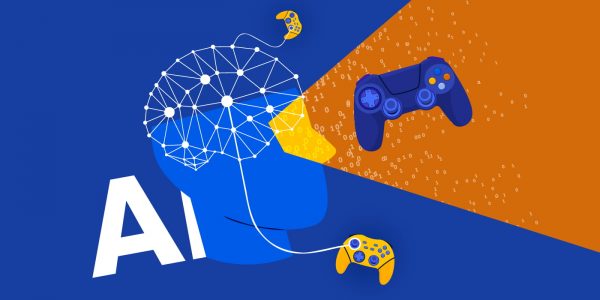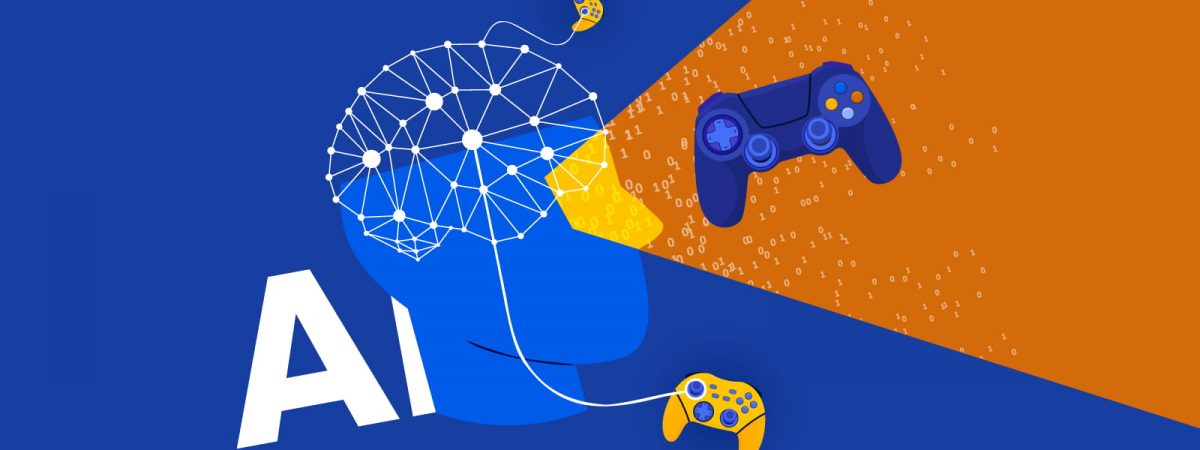The gaming industry has radically benefited from the integration of artificial intelligence (AI). However, as with many innovations, there is often a dual impact; AI has played an integral role in concurrently preventing and enabling cheating in gaming. Ergo, this article assesses the origins of cheating in the gaming industry, its consequences and the effectiveness of measures taken to combat it.
AI’s Role in Countering Cheating in Gaming
Cheating has a long history in gaming – usually harmless and trivial. Gaming is primarily a form of entertainment, although in some instances players can spend real money to enhance their experience. Consequently, cheating diminishes the enjoyment of others and can result in unfair advantages. To address this fundamental flaw, online gaming platforms bear the responsibility of preventing cheating and must deploy technological solutions to ensure fair and secure gameplay.
The Battle Against Hacking
Hacking has presented a persistent challenge in online and video gaming, facilitating participants to manipulate the system to their advantage. Activities included gaining extra credits and rigging games to ensure more substantial payouts. Moreover, unauthorized access to other players’ accounts for financial gain was a prevalent issue; to combat this, online gaming platforms introduced security features such as end-to-end encryption – SSL encryption effectively safeguards sensitive information, ensuring that only legitimate account holders can access their data.
Collusion Among Players
Players also employ cheating by colluding with others in online games: Sharing sensitive information, such as card details, provides an unfair advantage to some players and hampers the experience for others. AI has been adopted to counter such behavior, with software analyzing the gaming patterns of potentially cheating players and notifying operators when discrepancies or irregularities are detected. Subsequently, these cheaters are banned from using the gaming platform’s services and their ill-gotten rewards retracted.
The Integrity of Slot Games
Slot machines such as Fire Joker Freeze are exceptionally popular due to their simplicity and entertainment value. However, concerns often arise regarding their fairness, with players suspecting rigging. Nonetheless, regulated and licensed iGaming platforms operate transparently – these platforms employ randomization technology to generate outcomes arbitrarily based on the principles of probability. Regulatory bodies rigorously assess these games and their randomization tools to guarantee fairness, eliminating the possibility of operators rigging online slots.
Cheating in Video Games
Popular online first-person shooter games like Counter-Strike have faced rampant cheating issues; cheat codes and console commands provide participants with unfair advantages, ranging from extra weapons to in-game conditions favoring them. Such practices taint the gaming experience, particularly during competitions and tournaments. Detecting cheating in massively multiplayer online (MMO) games posed a challenge due to encrypted data transmissions. Previously, decrypted game logs were the sole method of uncovering anomalies; however, tech advancements now allow real-time analysis of encrypted data traffic.
AI-Powered Gaming Cheats
Game developers commonly incorporate cheat codes for debugging and game improvement purposes; however, third-party developers and players have devised malicious codes providing unwarranted advantages, ultimately exploiting game systems. These codes act as intermediaries between the game and online play, using live streams to track mouse and keyboard inputs, providing players with a significant edge. Although some basic cheats can be detected by anti-cheat software, more advanced ones remain elusive as they lack distinct markers and are easily accessible. Advanced cheats operate in real-time, deducing actions and strategies.
AI’s Role in Preventing Cheating
AI is instrumental in identifying cheating in gaming by analyzing player behaviors for irregular patterns that imply cheating – this analysis considers factors like player movements, in-game assets and interactions. Additionally, AI is applied to improve matchmaking by assessing player preferences and data – this assists in revenue generation and player retention while preserving the game’s reputation. However, integrating blockchain technology provides a secure and transparent method for storing player data, further deterring cheating. Nonetheless, this solution is not without its challenges, including scalability limitations and the resource-intensive nature of blockchain and AI implementation.
The Landscape of AI Anti-Cheat Tools
Several anti-cheat solutions exist in the gaming industry:
- BattlEye: Promising initially, BattlEye suffered from numerous false positives and limited adoption beyond Battlefield 5.
- Valve anti-cheat: Similarly, despite its promise Valve Anti-cheat faced issues like false positives and in-game lag, affecting the gaming experience.
- FaceIT anti-cheat: This tool, used on FaceIT competitive gaming sites, has been criticized for excessive lag and launch failures.
- ESEA anti-cheat: ESEA provides a subscription-based anti-cheat solution for CSGO but its effectiveness is diminished by the ability of players to create new accounts.
The Quest for the Perfect AI Anti-Cheat Solution
The gaming industry urgently requires a perfect AI anti-cheat tool to ensure its integrity in future. An ideal anti-cheat tool should do more than merely detect cheating—it should continually monitor player behaviors, assess accuracy and evaluate online time versus player proficiency. Such a tool must adapt and evolve, remaining ahead of ever-evolving cheating tactics. Anybrain, though still in testing, shows potential as an AI tool that identifies in-game irregularities unperceivable to the human eye. It considers various parameters, including aimbot usage, shooting accuracy and player behavior, ensuring a comprehensive approach to detecting cheating in real time.
Closing Remarks
AI has undeniably left an indelible mark on the gaming industry; although its influence has been overwhelmingly positive, it has also stimulated fresh challenges – most notably the pervasive issue of cheating in online games. Effectively addressing these challenges is of critical importance, where unchecked cheating could undermine the integrity of gaming and lead to a decline in player engagement.
In response to these concerns, we can witness the emergence of AI-powered anti-cheat solutions like Anybrain. These innovations signify the relentless commitment of the gaming community to provide fair and enjoyable experiences to all players. Anybrain, although in its testing phase, holds the promise of becoming the ultimate AI-driven anti-cheat tool for the future of gaming. As the gaming landscape continues to evolve, the question that looms is whether Anybrain will fulfill its potential and truly revolutionize the fight against cheating in gaming.




